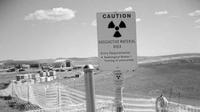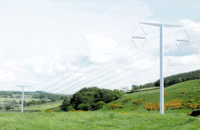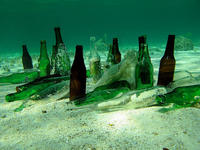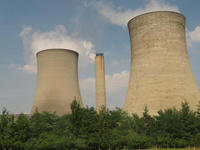-
FBI better prepared to thwart bioterror attack on U.S.
The FBI says that in the decade since deadly anthrax spores were sent through the mail in 2001, killing five people and sickening twenty-two others, it has made significant advances in efforts to prevent and identify bio-terror threats
-
-
Squirrel causes explosion, knocks out Connecticut town’s power

Last week more than 14,000 homes in Greenwich, Connecticut were left without power after a squirrel managed to find its way into a substation and caused an explosion that sent flames shooting 150 feet into the air
-
-
A precursor to the next Stuxnet discovered
Symantec reports the discovery of a sample malware that appeared to be very similar to Stuxnet, the malware which wreaked havoc in Iran’s nuclear centrifuge farms last summer; the new malware — dubbed Duqu — is essentially the precursor to a future Stuxnet-like attack; the threat was written by the same authors (or those that have access to the Stuxnet source code); Duqu gathers intelligence data and assets from entities, such as industrial control system manufacturers, in order more easily to conduct a future attack against another third party
-
-
Improving critical infrastructure protection
Salt River Project (SRP), the U.S. third-largest public power utility, recently announced that it had teamed with Quantum Secure to help protect its facilities
-
-
Highly concentrated radiation found in Tokyo
A recent study indicates that radiation from the Fukushima Daiichi nuclear power plant, which suffered a meltdown following the 11 March earthquake and tsunami in Japan, has spread further and was more concentrated than previously thought
-
-
Cold War nuclear legacy challenges science, society

Fifty years of U.S. nuclear weapons production, and government-sponsored nuclear energy research and production, generated contaminated soil and groundwater covering two million acres in thirty-five states; for most of that period, the U.S. government did not have environmental structures, technologies, or infrastructure to deal with the problem
-
-
Danish designer wins completion for new U.K. pylons

There are 88,000 pylons in the United Kingdom, carrying 400,000 volts of electricity over thousands of miles across the country; the design of the pylons has barely changed in eighty years – and a winner has just been announced in the competition for a new pylon design
-
-
Waste glass cleans up water

A simple method converts waste glass into a material which can be used to remove pollutants from contaminated water; the method uses colored glass which is being stockpiled in the United Kingdom as there is less recycling demand for green and brown bottles than there is for clear bottles
-
-
'Thinking machines' will run future power grids
Plans to develop the smart grid — a system that uses intelligent computer networks to manage electric power — cannot succeed without the creation of new “thinking machines” that can learn and adapt to new situations, from power outages along the grid to fluctuations in the power supply
-
-
Creating incentives to purchase disaster insurance
Natural disasters have become more common and more expensive – still, death, injury, and financial losses can be reduced through incentives to purchase insurance and install protective measures
-
-
Engineering lessons of Fukushima
Many engineers and scientists are still examining what happened at Fukushima during the earthqyake and tsunami of 11 March; one group, a Tsunami Loads-and-Effects Subcommittee sponsored by the American Society of Civil Engineers (ASCE), is preparing to publish early next year an approximately 350-page report
-
-
Blackberry service disruption spreads across North America
Research in Motion announced earlier today that the 3-day disruption of the company’s e-mail services has now spread across North America; it is the worst such disruption of service in two years; analysts say it is a major blow to the already-struggling company; not only individuals, but also private companies and government agencies may now reconsider their reliance on Blackberrys as their preferred mode of communication
-
-
U.K. nuclear plants are safe: report

The United Kingdom has finalized a review of the implications of the Fukushima disaster for the U.K. nuclear power industry; Dr. Mike Weightman, the author of the review, said that the “U.K. nuclear facilities have no fundamental safety weaknesses”
-
-
Calif. Allows warrantless searches of cell phones

California Governor Jerry Brown has vetoed a bill which aimed to prohibit California police from conducting warrantless searches of the cell phones of people under arrest
-
-
Reducing exposure to groundwater arsenic
Well diggers in Bangladesh will soon be able to take advantage of a cell phone-based data system, developed at the Earth Institute, to target safe groundwater aquifers for installing new wells that are not tainted with arsenic
-
More headlines
The long view
Falling Space Debris: How High Is the Risk I'll Get Hit?
By Zulfikar Abbany, Julia Vergin, and Katja Sterzik
An International Space Station battery fell back to Earth and, luckily, splashed down harmlessly in the Atlantic. Should we have worried? Space debris reenters our atmosphere every week.
Using Drone Swarms to Fight Forest Fires
Forest fires are becoming increasingly catastrophic across the world, accelerated by climate change. Researchers are using multiple swarms of drones to tackle natural disasters like forest fires.
Strengthening the Grid’s ‘Backbone’ with Hydropower
By Michael Matz
Argonne-led studies investigate how hydropower could help add more clean energy to the grid, how it generates value as grids add more renewable energy, and how liner technology can improve hydropower efficiency.
LNG Exports Have Had No Impact on Domestic Energy Costs: Analysis
U.S. liquified natural gas (LNG) exports have not had any sustained and significant direct impact on U.S. natural gas prices and have, in fact, spurred production and productivity gains, which contribute to downward pressure on domestic prices.
